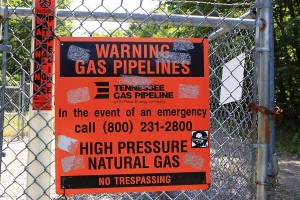Christie Abdication: DEP Commissioner Martin Waives Rules for Rebuilding Wiped Out Infrastructure
[Update #2 – 11/11/12: Todd Bates at Asbury Park Press writes the story: Government rebuilds with little regard for next storm]
Update #1 – 11/7/12: Tom Johnson at NJ Spotlight writes the story: State Agency Waives Environmental Rules to Speed Rebuilding After Storm.
I found it interesting that Gov. Christie felt the need to issue a press release in response to our criticism (the chronology proves that: Martin quietly signed the Order on 11/3. After we disclosed and criticized it, just hours later Christie issued his release on 11/6. They were clearly trying to stealth it, just like the sewage treatment plant discharges of raw sewage.
The release quoted DEP Commissioner Martin again flogging the “red tape” slogan (man is that getting old):
“Restoring basic public infrastructure will be a critical first step toward the recovery of our cities and towns. For emergency repairs, we cannot let bureaucracy get in the way. Red tape should not and will not hold up this vital work.
But Tom gave me the money quote that stuck a finger in Martin’s eye:
Those provisions provided little solace to critics of the move.
“The order amounts to a total abdication of DEP’s responsibility to supervise responsible planning and environmentally sound permitting of critical public infrastructure,’’ said Bill Wolfe, director of the New Jersey chapter of Public Employees for Environmental Responsibility, a public watchdog group. – end update]
Again illustrating a remarkably irresponsible anti-regulatory and anti-government zeal, Christie Administration DEP Commissioner Martin issued a unilateral Order waiving DEP coastal zone, wetlands, and flood hazard regulations for rebuilding infrastructure wiped out by “Superstorm Sandy”. (read the Martin Order 2012-13).
Commissioner Martin has learned exactly NOTHING from “Superstorm Sandy”.
The Order amounts to a “right to rebuild” infrastructure, regardless of whether it was located in a vulnerable high flood hazard area and should NOT be rebuilt (or relocated, elevated, or flood proofed).
- Natural gas pipelines on barrier islands that that have caused massive fires?
- Water and sewer pumping stations that have been inundated by flood waters?
- Back up diesel systems at sewage and water treatment plants that failed due to storm surge and caused raw sewage discharge and drinking water emergencies?
- bridges and roadways along rivers and creeks that washed out?
- washed out sewer and water lines in coastal high hazard and inland flood hazard areas?
- washed out stormwater outfalls?
- Highly vulnerable Barrier Island roads, bridges, water and sewer?
DEP won’t get in the way of rebuilding them in the same highly vulnerable locations and at the same elevations!!!
Insane.
The Order amounts to a total abdication of DEP’s responsibility to supervise responsible planning and environmentally sound permitting of critical public infrastructure.
Not suprisingly, the DEP wiaver comes at exactly the moment when a huge debate is about to ensue on the State’s policy on infrastructure rebuilding.
In unusually good reporting, the NY Times has been all over that story, with a focus on NY City issues, see:
- New York Is Lagging as Seas and Risks Rise, Critics Warn
- For Years, Warnings That It Could Happen Here
- After Getting Back to Normal, Big Job Is Facing New Reality
- Protecting the City, Before Next Time
From the NJ perspective, Tom Johnson at NJ Spotlight wrote a superb piece on that set of issues today. Tom wrote:
One way to address the problem, Grant said, is to determine what parts of the infrastructure can be rehabilitated and what parts need to be replaced. No matter how those decisions play out, because of the sheer magnitude of damage caused by the storm, it is going to take years to address the problems, he said.
How and when New Jersey rebuilds from the storm also is likely to generate a whole lot of debate.
DEP Commissioner Martin has just waived DEP’s regulations that would allow this debate to emerge publicly.
The Order also raises federal issues, because some wetlands permits involve federally delegated authority, so US EPA needs to get involved in reviewing the Martin Order for compliance with the requirements of federal environmental laws.
Martin’s approach reflects Governor Christie’s radical “get government out of the way” ideology.
The Legislature needs to step in and check the Governor’s irresponsible “hand’s off” approach to rebuilding critical public infrastructure.
[End Note: and the sneaky bastards issued the Order the day before a national Presidential election, when they know the media won’t cover it.
And DEP has absolutely confirmed my prior October 26 claim: DEP Using “Frankenstorm” as Cover for Weakening Regulations.]

 We’ve previously written about the
We’ve previously written about the